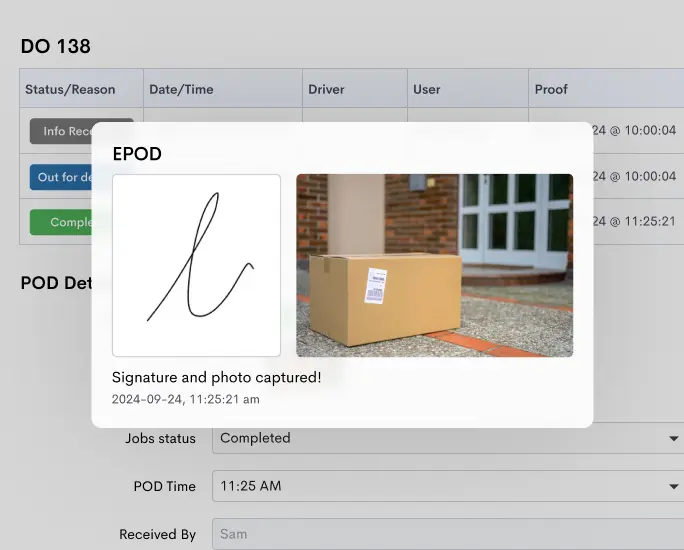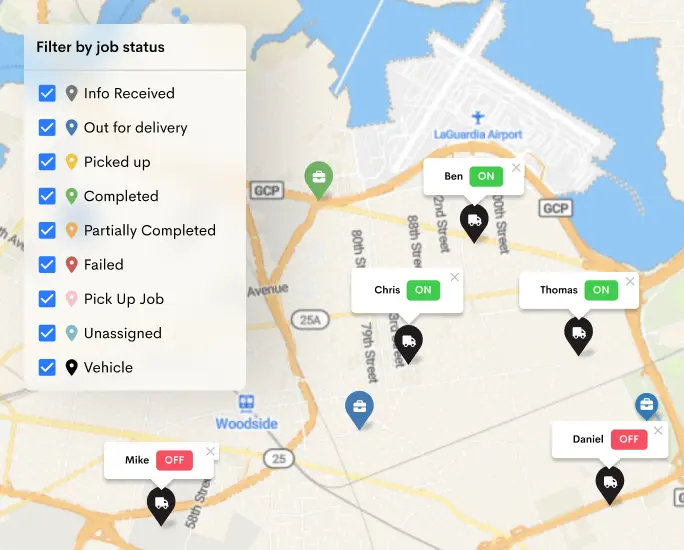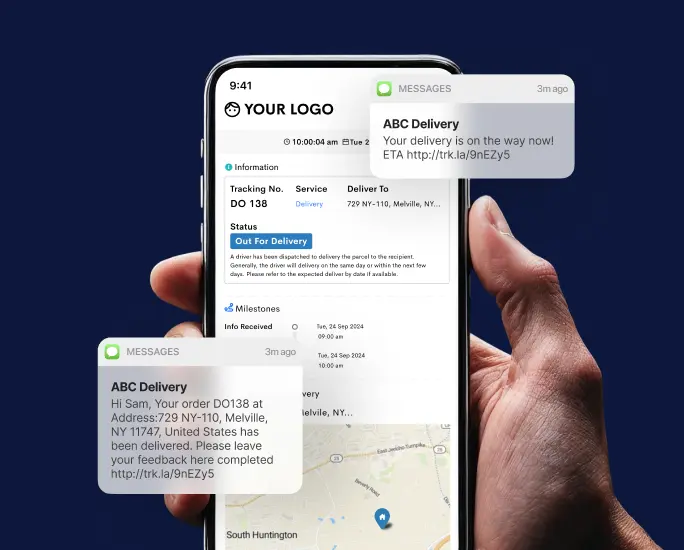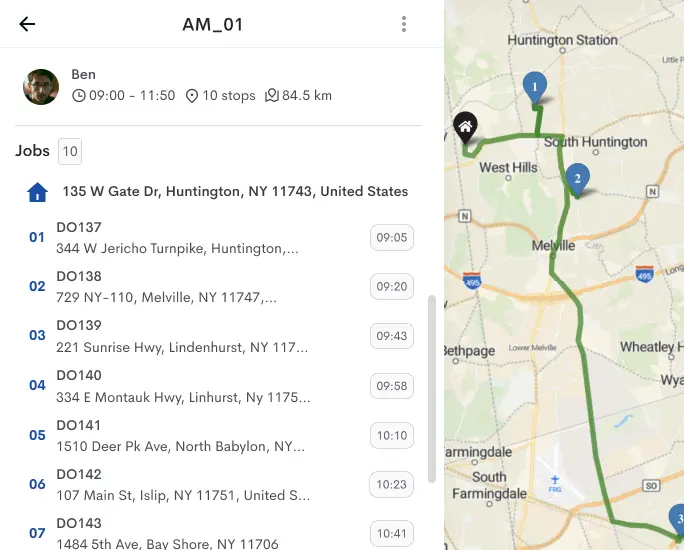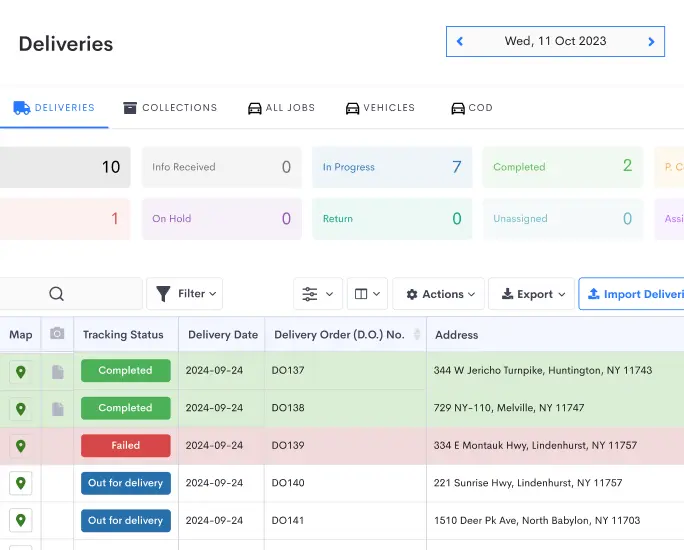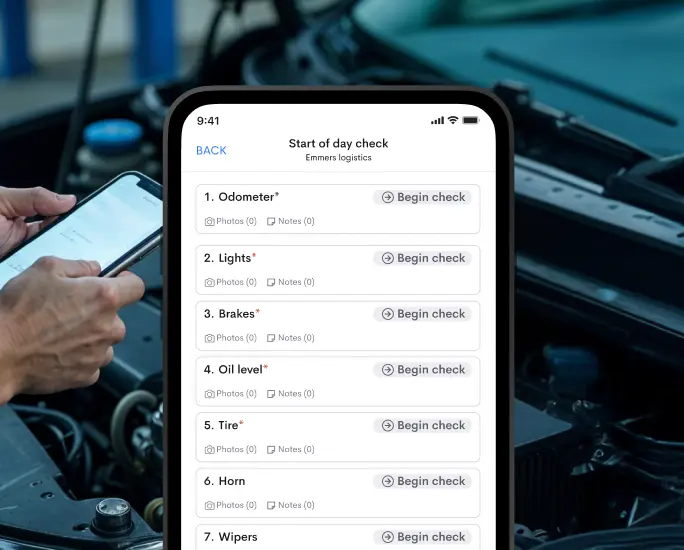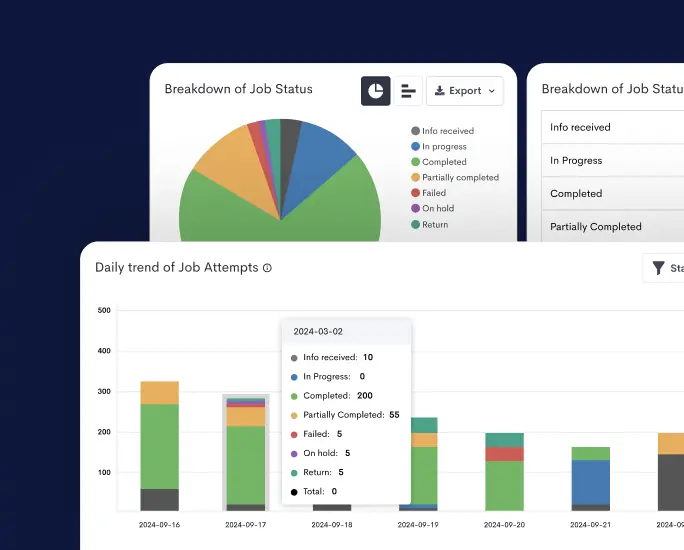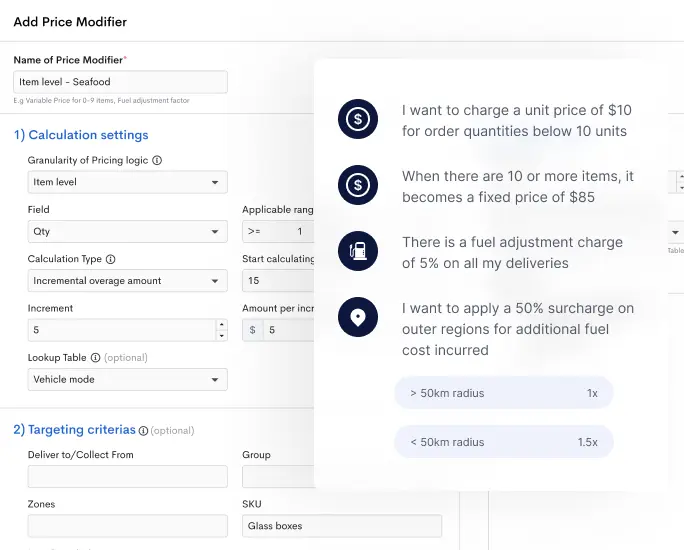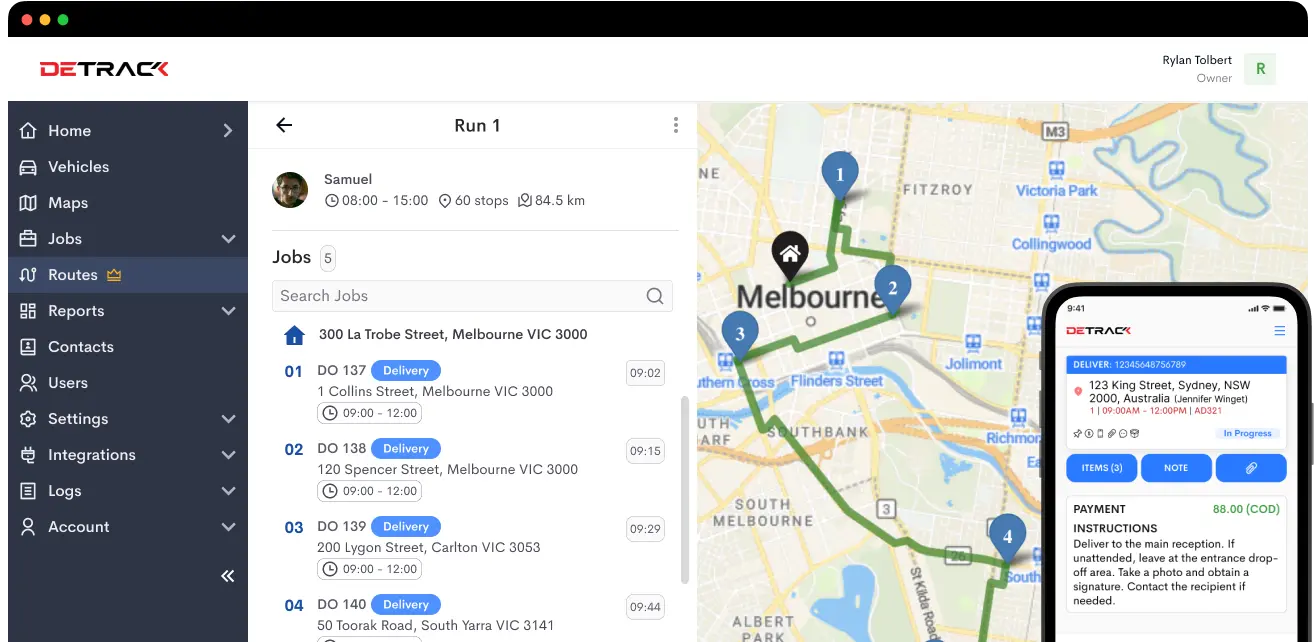Efficient fleet management is crucial for businesses that rely on transportation to deliver their products or services. Whether you operate a small delivery service or manage a large fleet of vehicles, implementing a fleet management system can provide numerous advantages.
These systems utilize technology and data to streamline operations, enhance safety, and improve efficiency. In this blog post, we’ll explore the top five benefits of implementing a fleet management system.

Benefits of Implementing a Fleet Management System
1. Improved Vehicle Tracking and Visibility
One of the most significant advantages of a fleet management system is tracking and monitoring your vehicles in real time. This level of visibility allows you to know the exact location of each vehicle, their speed, and the routes they are taking.
With this data, you can optimize routes to reduce fuel consumption and delivery times, improving overall operational efficiency.
Furthermore, vehicle tracking can enhance security by deterring unauthorized use and theft.
Additionally, improved visibility enables you to provide accurate delivery times to customers, increasing their satisfaction and trust in your services.
2. Reduced Operating Costs
Fleet management systems can significantly reduce operating costs, making them a valuable investment for any business. Here’s how they achieve cost savings:
- Fuel Efficiency – Fleet management systems can identify inefficiencies that lead to increased fuel consumption by monitoring vehicle speed and engine performance. You can then take corrective actions, such as driver training or vehicle maintenance, to improve fuel efficiency. Reduced fuel consumption saves money and benefits the environment by reducing carbon emissions.
- Maintenance Optimization – Fleet management systems can track vehicle health and maintenance schedules. Predictive maintenance alerts can help you address issues before they become costly breakdowns. This proactive approach minimizes downtime and expensive emergency repairs, ensuring your fleet remains in optimal working condition.
- Reduced Insurance Costs – Insurance companies often offer lower premiums to businesses that use fleet management systems. These systems’ improved safety and risk management capabilities can lower the likelihood of accidents and provide evidence in case of disputes. As a result, you can enjoy reduced insurance costs, further contributing to your overall savings.
3. Enhanced Driver Safety
Safety is a top priority in any fleet operation, and a fleet management system can significantly improve driver safety. Here’s how:
- Driver Behavior Monitoring – Fleet management systems can monitor various driver behaviors, such as speeding, harsh braking, and rapid acceleration. By tracking these metrics, you can identify risky behaviors and provide targeted training to improve driver safety. Safer driving reduces the risk of accidents and helps lower maintenance costs.
- Compliance with Regulations – Many regions have strict regulations regarding commercial drivers’ driving hours and rest periods. Fleet management systems can automatically track and report on driver compliance, reducing the risk of violations and associated fines. This ensures that your operations remain within legal boundaries.
- Accident Prevention – The real-time tracking capabilities of fleet management systems enable you to respond quickly to emergencies. In case of an accident or breakdown, you can dispatch assistance promptly, potentially reducing the severity of the situation and improving driver safety.

4. Increased Productivity and Efficiency
Efficiency is a key factor in the success of any fleet-based business. Fleet management systems offer several features that can boost productivity:
- Route Optimization – By analyzing traffic data and real-time road conditions, these systems can recommend the most efficient routes for your drivers. This minimizes vehicle travel time, fuel consumption, and wear and tear.
- Scheduling and Dispatching – Fleet management systems enable efficient scheduling and dispatching of vehicles. You can assign tasks to the nearest available driver, reducing idle time and maximizing the use of your fleet.
- Asset Utilization – With accurate data on vehicle usage and availability, you can optimize the allocation of resources. This means you can right-size your fleet, eliminating unnecessary vehicles and reducing operational costs.
- Paperless Documentation – Fleet management systems often include digital record-keeping capabilities. This eliminates the need for manual paperwork, reducing administrative overhead and minimizing the risk of errors.
5. Enhanced Customer Service and Satisfaction
Happy customers are the lifeblood of any business, and fleet management systems can contribute to improved customer service and satisfaction in several ways:
- Accurate ETA Predictions – With real-time tracking and route optimization, you can provide customers with accurate estimated arrival times (ETAs). This transparency enhances customer trust and allows them to plan their schedules more effectively.
- Delivery Confirmation – Fleet management systems can offer proof of delivery, including timestamps and electronic signatures. This eliminates disputes over whether a delivery was made and gives customers peace of mind.
- Exception Management – In case of delays or delivery issues, fleet management systems can automatically notify customers and provide explanations. This proactive communication demonstrates your commitment to customer satisfaction and helps manage expectations.

How Detrack Can Help with Fleet Management
In conclusion, investing in a fleet management system is a wise choice if you’re looking to optimize your fleet and stay competitive in today’s market. It improves your bottom line and positions your business for long-term success in the fast-paced world of transportation and logistics.
Detrack, a cloud-based last-mile delivery tracking and electronic proof-of-delivery (E-POD) solution, plays a pivotal role in fleet management. It offers real-time tracking and visibility of delivery vehicles, enabling accurate estimated arrival times, route optimization as an add-on, and proactive issue management.
Detrack’s digital POD system enhances accuracy and accountability, eliminating paper-based documentation and facilitating quick retrieval. Efficient scheduling and dispatching capabilities automate task assignments and foster seamless communication between dispatchers and drivers, reducing administrative overhead.
Customizable notifications keep customers informed and aid in issue resolution, while comprehensive analytics and reporting tools offer valuable insights into fleet performance.
Detrack’s scalability and integration potential make it a powerful tool for optimizing last-mile delivery operations, reducing costs, improving customer satisfaction, and staying competitive in the evolving logistics landscape.

